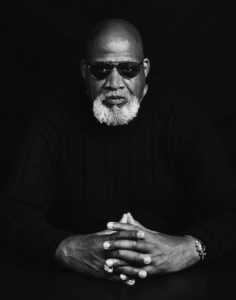
Dr. Harry Edwards
*Dr. Harry Edwards Jr. was born on this date in 1942. He is a Black sociologist, author, and civil rights activist.
Edwards was born in east St. Louis, Illinois. He is the son of Harold Thomas Barksdale Edwards of Pine Bluff, Arkansas, and Adelaide (Cruise) Edwards in Hattiesburg, MS. Edwards graduated from East St. Louis Senior High School. An exceptional athlete, he was awarded an athletic scholarship to San Jose State University in 1960. He had been a discus thrower on the school’s track team and witnessed firsthand the racial inequities on campus and how they extended into the classroom.
Blacks were limited in what they were allowed to study. The essential wisdom was that blacks were natural athletes, so we could cut it in physical education. Blacks could study social welfare or criminology because they would always be criminals and welfare recipients but weren’t allowed the same freedom to enroll in more academically challenging and less applied fields. Segregation at San Jose State University stretched beyond the classroom; black students were not allowed to be housed in facilities approved by the University for fear that the white students would move out. Blacks had no access to simple places such as the campus recreation hall or a restaurant. After graduating with honors from San Jose State, Edwards enrolled in the graduate program at Cornell University as a Woodrow Wilson Fellowship, earning his Ph.D. in Sociology. He turned down tryouts with the Minnesota Vikings and San Diego Chargers to pursue his Master's.
He began graduate work in sociology at Cornell University and was among the first students to study Black sociology. After receiving his M.A. in 1966, Edwards took a temporary leave from Cornell to teach as a San Jose State University visiting professor. This period also spawned the “Revolt of the Black Athlete,” following Edwards and Kenneth Noel’s formation of the United Black Students for Action (UBSA). This organization's presence led to the cancellation of San Jose State University’s opening football game with the University of Texas at El Paso in 1967, the first major college in the U.S. to cancel an athletic event under racial protest.
The cancellation led the university to reform its athletic program, addressing many of the UBSA's concerns. The UBSA transformed itself into the Olympic Project for Human Rights (OPHR), an organization designed to boycott the 1968 Summer Olympics. Edwards was the lead organizer and public face of the OPHR. Despite much public criticism, personal threats, and constant FBI surveillance, Edwards and the OPHR led a successful boycott of the New York Athletic Club Indoor Track Classic. OPHR also led anti-apartheid protests that prevented South Africa from reinstating into the Olympic Games. The most eminent point of the OPHR protest came in October 1968, at the Mexico City Summer Olympics, when Tommie Smith and John Carlos shocked the world by protesting against racism and human oppression with a Black-gloved fist salute while standing on the winners’ podium.
Ironically, this protest occurred as Edwards studied in graduate school at Cornell University and worked on his first major book, The Revolt of the Black Athlete. Other writings from Dr. Edwards include Sociology of Sport, Dorsey Press, 1973. The Struggle That Must Be, New York, MacMillan, 1980. "Educating Black Athletes," The Atlantic Monthly, Vol. 253, No. 2, August 1983. "Black Student-Athletes: Taking Responsibility," California Living, 1984; also in Representative American Speeches, H.W. Wilson Co., 1984. He is a Professor Emeritus of Sociology at the University of California, Berkeley. Dr. Edwards' career has focused more on African American athletes' societal and intersectionality experiences.
He strongly advocates for black participation in managing amateur and professional sports. He has served as a staff consultant to the San Francisco 49ers football team and to the Golden State Warriors basketball team. He has also recruited black talent for front-office positions in major league baseball. He once told Time magazine: "We must teach our children to dream with their eyes open," he said. "The chances of your becoming a Jerry Rice or a Magic Johnson are so slim as to be negligible. Black kids must learn to distribute their energies in a way that's going to make them productive, contributing citizens in an increasingly high-technology society.”
In 2014, the University of Texas at Austin established a lecture forum in Edwards' name, the "Dr. Harry Edwards Lectures on Sport and Society." However, in 2016, Edwards rescinded all association and affiliation with the lecture forum due to the university's implementation of the State of Texas "campus concealed carry law." Dr. Edwards commented on the Emmy Award-winning documentary O.J.: Made in America.